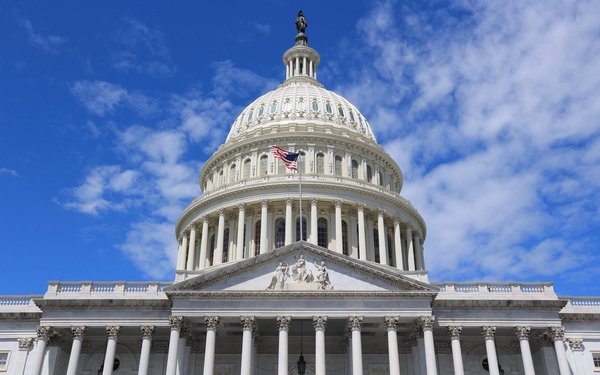Controversial Kids Online Safety Bill Introduced In House
- by Wendy Davis @wendyndavis, April 10, 2024

Bipartisan lawmakers in the House on Tuesday introduced a companion bill to the Senate's proposed Kids Online Safety Act -- a controversial measure that would regulate how social media platforms display material to minors under 17.
Like the Senate proposal, the House bill aims to tackle potential harms associated with social media use -- including depression, eating disorders, and online bullying. The measure was introduced by Reps. Gus Bilirakis (R-Florida), Kathy Castor (D-Florida), Erin Houchin (R-Indiana) and Kimberly Schrier (D-Washington).
The House Energy and Commerce Committee is scheduled to hold a hearing on April 17 on the teen safety bill and other proposed laws affecting online media -- including the newly introduced American Privacy Rights Act, which would restrict online behavioral advertising.
advertisement
advertisement
The current House and Senate versions of Kids Online Safety Act bills would require large tech platforms to platforms to use “reasonable care in the creation and implementation of any design feature” to prevent and mitigate potential harms. Design features would include notifications, automatic playing of videos, personalized recommendations and filters that alter appearances.
Some youth advocates, including the group Fairplay, cheered news of the bill's introduction in the House.
“We are one giant step closer to ending Big Tech’s reign of terror and putting in long-needed guardrails to protect children online,” Josh Golin, executive director of Fairplay, stated.
But digital rights advocates and the tech industry group NetChoice oppose the bill, arguing both that it could lead to censorship, and could violate people's right to access material anonymously.
While bill sponsors argue that the measure doesn't require age-verification, opponents say the law would give web companies an incentive to verify users' ages in order to avoid liability.
“Age verification threatens adult speech and online privacy by denying individuals the ability to browse the web anonymously, which may deter them from browsing at all,” the ACLU wrote in February. “It also increases the risk that users’ personal identifying information may be subject to a data breach.”
The Electronic Frontier Foundation separately argued that the government can't constitutionally regulate design features of social media platforms any more than it can regulate how newspapers present content online.
“Regardless of whether we like infinite scroll or auto-play on platforms, these design features are protected by the First Amendment,” the group wrote. “If the government tried to limit an online newspaper from using an infinite scroll feature or auto-playing videos, that case would be struck down.”


